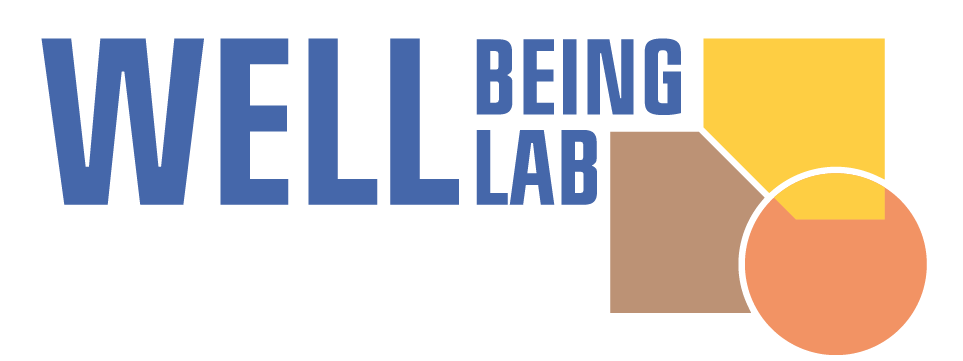Exploratory inquiry & problem analysis
Aligned with the network-based focus in the research process, Pedersen has adopted an exploratory approach in the initial research stages, which emphasizes the importance of perceiving multiple voices and perspectives. Stress is a contested topic, and research on stress specifically among students has not yet received extensive scholarly attention. Therefore, it has been important to Pedersen to approach the topic with an attitude openness and not assuming conclusions beforehand; or as she puts it: “from an attitude that we don’t know yet what we are dealing with”. One consideration is to inquire without pre-assuming the reasons for stress, but another is how to research the internal emotions, tensions, conflicts and experiences of others? Together with sociologist Troels Krarup from Copenhagen University, Pernille Steen Pedersen has developed some techniques for researching such intra-personal conflicts and tensions. Drawing on Foucault’s work they use the term “problem analysis” to describe this approach. It is an approach designed to work with “problems”, which they perceive as generic situations imbued with tensions, ambiguities, contradictions and potentially even conflicting arguments. Why do such contradictions arise and what are the conditions that make these contradictions coexist and arise repeatedly? Krarup and Pedersen are working with the hypothesis that conflicts that keep arising, e.g., the reoccurrence of people going down with stress, can be seen as relations or answers that arise at some level but due to a deeper underlying problem, the conditions that give rise to their existence. This underlying problem, however, might be unclear or invisible at first. In relation to stress research this also stems from the fact, that the topic touches upon emotions as well as tensions and conflicts that can be difficult to speak about or put into precise words. Emotions are difficult to study and can often be contradictory within the same experience. The “problem analysis approach” is thus a methodological tool to address these appearing contradictions in order to explore and reveal the deeper conditions causing a given problem.
In her work on work-related stress, Pedersen has often encountered that people tend to approach stress by wanting to find one root cause and evaluate a situation. For example, an interviewee shared how she had reported stress-related sick leave to a manager with a few explanations for the reasons why, and the response she received was “this is not something that can cause stress”. That someone arrives at the point of sick leave cannot be explained through a few situations, however, but some crucial moments might become the last drop making the cup run over. There is a tendency to judge from a place of right or wrong, if it is okay for someone to be stress by this or that, to doubt and question their experience. According to Pedersen it is important to refrain from judging others’ experiences and jumping to quick conclusions. She advocates an open mind to investigate stress and to explore the issue from a broader perspective through different stress-related experiences. Problem analysis departs from an open inquiry into contradictions in the empirical material, without assessing statements as being right or wrong, but looking into the relations, connections, practices and emotions across the material. By unfolding contradictions and tensions in the material, and analyzing across multitude of experiences, “problem analysis” looks for patterns that can shed light on more fundamental issues behind the immediate conflicts.
In Pedersen’s material immediate conflicts can for example be employees sharing experiences of feeling powerless, feeling outside the community, feeling a change in how one is treated, and feeling not good enough to handle a task. Comparing across the type of situation across many different employees, there seems to be some commonalities and patterns. Pedersen then asked, what is it that binds these seemingly different moments together? What are the conditions that makes such conflicts arise? This inquiry led her to introduce the notion of shame, as an analytical stance and conceptual explanation for an underlying foundational problematic. From this perspective it also becomes evident that these stress experiences cannot be reduced to being about the individual, because similar experiences and circumstances reappears for many people and in different organizations. These are shared experiences for many people, which then reveals some more foundational relational dynamics between human beings and within workplaces.
Instead of trying to judge, fix the individual or clarify if it is “correct” that one can be stressed of “this or that”, Pedersen approach stress from a place of wanting to understand what stress does and in which kind of situations across many different people. Her approach incorporates the opposing feelings and contradictory statements people might share, as something human and realistic that reflects the ambivalence and paradoxes that also constitute modern work life. Her aim is to develop methods to talk about it without evaluating or judging neither ourselves nor others, for example in form of dialogue cards to facilitate such talks. Research that develops concepts that can provide explanation for the deeper underlying problems behind immediate conflicts or issues, will ensure a different point of departure for developing new measures and transformational solutions.
In the podcast below (in danish), “Ud af skammekrogen”, produced by CBS Teaching and Learning and edited by Emil Nørgaard Munk, Pernille Steen Pedersen and Troels Krarup are discussing in greater details their work and method of problem analysis.
